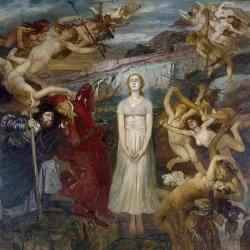- HOME
- ABOUT ME
- movies
- MEDIA
- L.Onerva
- Eino Leino
- Eeva-Liisa Manner
- Erään Opon päiväkirja
- Elämänkenttäni
- Elämäni ”viiva”
- Käyttöteoriani – se miten minä ohjaan
- Kulttuuritietoinen ja kansainvälistyvä ohjaus
- Ohjauksen järjestäminen maahanmuuttajakoulutuksessa
- Ohjauksen yhteiskunnallinen viitekehys
- Ohjaukäsite
- Oma opiskeluorientaatio
- Opiskelijoiden yksilöllisyys ohjauksessa
- EETTISET KYSYMYKSET
- Psykososiaalisen kehityksen teoria
- Suhteeni erilaisuuteen ja tehtäväni opinto-ohjaajana
- Opinto-ohjauksen ja erityisopetuksen yhtäläisyyksiä ja eroja
- Kehitykseni opinto-ohjaajana
- Maahanmuuttajan uraohjaus
- Maahanmuuttajien ohjaus ja neuvonta: kuka, mitä, miten?
- Ohjauksen tulevaisuus
- Elämänkenttäni
- Mariana Marin
- Claudiu Komartin
- Mariana Codrut
- Roland Erb
- Romanian poetry
- ESSAYS
- STORIES
- CLASSIC POETRY
- CONTEMPORARY POETRY
- TRANSLATED POEMS
- READING POETRY
- CONTACT
- translated Italian-English
- translated Italian-Romanian
- translated Spanish-English
- translated Spanish-Romanian
May, 2022
AN HÖLDERLIN / CĂTRE HÖLDERLIN / TO HÖLDERLIN
POSTED IN Roland May 24, 2022

AN HÖLDERLIN / CĂTRE HÖLDERLIN / TO HÖLDERLINLeb du in deinem dröhnenden Haus Sprache,
geh taumelnd unter den Bäumen dahin
bei heiterer Stimmung, lieblichen Lüften.
Auch steig zurück in den Turm, die düstern
Gedanken.
Heut soll dir nichts mehr geschehn. Da oben
erwarten wir dich, die Stummen.ROLAND ERB
………………..CĂTRE HÖLDERLIN
Trăiești in casa hohotitoare a limbajului tau,
du-te clătinindu-te sub copaci
într-o dispozitie veselă, aer încântător.
Urcă, de asemenea, înapoi în turn, gandurile
sumbre.
Nu ți se va mai întâmpla nimic astăzi. Acolo sus
te asteptam, tacerea.
………………TO HÖLDERLIN
You live in your roaring language house,
go staggering under the trees
in a cheerful mood, lovely air.
Also climb back into the tower, the gloomy
thoughts.
Nothing more shall happen to you today. Up there
we are waiting for you, the silence.
trad. M. M. Biela
PERCEVALS BESCHWERLICHE REISE / CĂLĂTORIA DIFICILĂ A LUI PERCEVAL / PERCEVAL’S HARD JOURNEY
POSTED IN Roland May 24, 2022
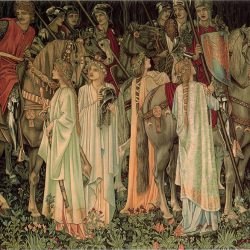
PERCEVALS BESCHWERLICHE REISE / CĂLĂTORIA DIFICILĂ A LUI PERCEVAL / PERCEVAL’S HARD JOURNEY
Gneissprung, der Pfad labyrinthisch
zum niemals genannten Ort.
Die Wohnstatt des schweigsamen Mannes,
vom Wildwasser, vom Feuer zerfurcht,
aufschimmert am Wald.
Luftwurzelverzweigt, blicklos ums Haus
dieses Braun bald gefällter Stämme.
O Weg –
nach vielstündiger Irrfahrt
im knarrendem Coupé, im morschen,
feldsteinzerklopften Gefährt –
führst du den unstet flackernden Blick
über lang verrufene Stufen
süß-bitteren Brotes Gaben zu?ROLAND ERB
………………….CĂLĂTORIA DIFICILĂ A LUI PERCEVAL
Salt de gnais, calea labirintică
catre locul niciodată amintit.
Locuința omului tăcut
brazdata de apa salbatica, de foc,
strălucește în pădure.
Rădăcină aeriana ramificata, fara privire în jurul casei
acest maro din trunchiuri curand doborâte.
Oh, drumule –
după multe ore de odisee
în coupé-ul scârțâitor, în vehiculul putred,
lovit de pietre de câmp –
iti conduci privirea sovaitoare si nesigura
peste pasi indelung discreditați
catre ofrandele painii dulci-amare?
…………………..
PERCEVAL’S HARD JOURNEY
Gneiss jump, the labyrinthine path
to the never-mentioned place.
The abode of the silent man,
furrowed by wild water, by fire,
shimmering in the forest.
Aerial root-branched, sightless around the house
this brown of soon felled trunks.
Oh, way –
after many hours of odyssey
in the creaking coupé, in the rotten,
fieldstone-beaten vehicle –
do you lead the unsteady flickering gaze
over long discredited steps
to sweet-bitter bread’s offerings?
trad. M.M. Biela
HAI! / LET’S!
POSTED IN Romanian May 20, 2022
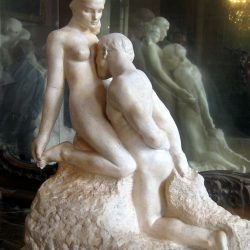
HAI! / LET’S!Hai sa ne îmbratisam
si iata cum:
Întâi sa asternem pe pat un cearsaf alb,
apoi sa ne lungim alaturi unul de altul
ca într-un sarcofag.
În sfârsit sa ne îmbratisam
cautând, cu zbateri lente, o tot mai intima
completare a corpurilor.
Sa ne anulam reciproc,
iar dupa disparitia noastra
cearsaful sa se netezeasca singur
si în cele din urma sa-si recapete
cutele dreptunghiulare.Hai sa ne suim în automobil
si sa plecam cât mai departe,
cât mai departe chiar si de departe.
Câte o raza piezisa de soare
va ricosa din când în când în parbriz
corectând drumul masinii
în timp ce noi ne vom privi unul pe altul
la nesfârsit.Sau, mai bine, fii prozaica si dezamageste-ma
ca sa ma vindec de elanul nefiresc.
Mi-e teama de ceea ce se petrece în sufletul meu,
seamana cu pierderea cunostintei
când te lovesti cu tâmpla
de marmura.
Si totusi, totusi, nu ma dezamagi!
mai bine, hai sa-ti rasfiri parul pe perna,
sa închizi ochii
si sa tii gura întredeschisa
ca sa ma droghez
cu respiratia ta.Hai sa murim împreuna.
O sârma de cupru subtire
sa o-nfasuram întâi pe inelarul meu
apoi pe inelarul tau
iar capatul liber sa-l legam la o priza.
… Întâi pe inelarul meu
si abia apoi pe al tau
pentru ca electricitatea sa ajunga la tine
îmblânzita.Hai sa ne privim în ochi
tot mai de-aproape
pâna când irisii
– ca o padure vazuta dintr-nu avion în cadere –
ne vor dezvalui, pentru câte o clipa,
carari întortocheate.Hai sa ne uitam amândoi la sânul tau stâng,
eu îl voi desena înca o data cu aratatorul,
iar tu îl vei salta putin, ca sa intre
în forma pura.Hai sa citim manuscrise de-ale tale.
Eu îti voi sta cu capul în brate,
iar tu îmi vei oferi fila dupa fila
urmarind urmarirea de catre mine
a fiecarui rând.
Când voi vrea sa spun ceva
îmi vei închide gura cu un sarut
si cât de fericit am sa consimt
la aceasta reprimare a spiritului critic!Hai sa ne descriem unul pe celalalt.
Voi începe eu spunându-ti
ca ai inima în partea stânga
adica deplasata spre mine
si sexul – inima negativa, cu puls spasmodic –
în unghiul cel mai greu accesibil.
Ochii tai, întotdeauna contrariati,
te fac sa semeni cu propria ta fotografie
luata în momentul aflarii vestii
ca am murit.
Poate tocmai de aceea când ma privesti
simt ca ma proiectezi foarte departe
în timp.Hai sa trecem unul pe lânga celalalt
ca si cum nu ne-am cunoaste,
sa facem un pas, doi, trei
marind distanta dintre noi
si dintr-o data sa ne smulgem din acest joc nemilos
si sa ne aruncam unul la pieptul celuilalt
cu lacrimi în ochi.ALEX STEFANESCU
……………..
Let’s hug
and here’s how:
First spread a white sheet on the bed,
then we lay down side by side
like in a sarcophagus.
Finally let’s embrace
looking for, with slow struggles, an ever more intimate
completion of the bodies.
Let’s cancel each other,
and after our disappearance
the sheet to smooth itself
and finally regain its
rectangular folds.Let’s get in the car
and go as far as possible,
as far as possible, even from afar.
One askew sunray
will bounce off the windshield from time to time
correcting the car’s path
while we look at each other
endlessly.Or, better yet, be prosaic and disappoint me
to heal my unnatural zeal.
I’m afraid of what’s going on in my soul,
it is like losing consciousness
when you hit your head
on the marble.
And yet, still, don’t disappoint me!
You better spread your hair on the pillow,
close your eyes
and keep your mouth ajar
so to get high
on your breath.Let’s die together.
A thin copper wire
let’s wrap it first on my ring finger
then on your ring finger
and tie the free end to a socket.
… First on my ring finger
and only then on yours
so that the electricity to reach you
tamed.Let’s look each other in the eye
closer and closer
until the irises
– like a forest seen from a falling plane –
will reveal to us, for a moment,
twisted paths.Let’s both look at your left breast,
I’ll draw it once more with the index,
and you will bounce it a little to get
into pure shape.Let’s read your manuscripts.
I’ll keep my head in your arms,
and you will turn page after page
following me as I follow
each line.
When I want to say something
You will close my mouth with a kiss
and how happily I will consent
to this repression of the critical spirit!Let’s describe each other.
I’ll start by telling you
that your heart is on the left side,
that is, shifted towards me
and your sex – the negative heart, with spasmodic pulse –
in the hardest to reach angle.
Your eyes, always confused,
make you look like your own photo
taken when you found out
that I died.
Maybe that’s why when you look at me
I feel like you’re projecting me far
back in time.Let’s pass each other
as if we didn’t know each other,
let’s take a step, two, three
increasing the distance between us
and suddenly let’s pull ourselves out from this ruthless game
and throw ourselves on each other’s chests
eyes in tears.
trad. M. M. Biela
THE BUTTERFLY / FLUTURELE
POSTED IN classic poetry May 18, 2022
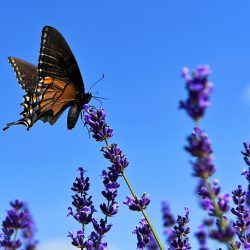
THE BUTTERFLY / FLUTURELE
The butterfly, an idle thing,
Nor honey makes, nor yet can sing,
— As do the bee and bird;
Nor does it, like the prudent ant,
Lay up the grain for times of want,
— A wise and cautious hoard.My youth is but a summer’s day:
Then like the bee and ant I’ll lay
— A store of learning by;
And though from flower to flower I rove,
My stock of wisdom I’ll improve,
— Nor be a butterfly.
ADELAIDE O’KEEFE
……………
FLUTURELE
Flutur, hoinar fara de tinta
Miere nu face, nici nu canta.
– Cum fac-albina, pasarea;
Nici ca furnica truditoare
Nu strange pentru vremi amare.
– Tezaur este firea.Junetea-i zi de vara, mica:
Apoi albina si furnica,
– Oi strange-nvatatura doar:
Și chiar de zbor din floare-n floare,
Intelepciunea-mi va fi mare,
– Nu fluture hoinar.
trad. M. M. Biela
EXKURS INS PFLANZENREICH: DIE ROSE DES PARACELSUS
POSTED IN classic poetry May 16, 2022
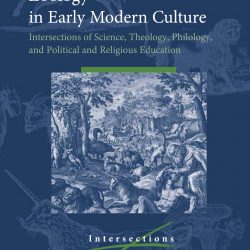
EXKURS INS PFLANZENREICH: DIE ROSE DES PARACELSUS.
DIE IDEE DER PALINGENESIE UND DIE DEBATTE UM DIE NATÜRLICHE AUFERSTEHUNG ZWISCHEN MITTELALTER UND NEUZEITBERND ROLING
EINLEITUNG
In einer seiner Parabeln mit dem schönen Titel „Die Rose des Paracelsus“ läßt der argentinische Schriftsteller Jorge Luis Borges einen Schüler die Studierstube des berühmten Naturphilosophen und Alchemisten Paracelsus betreten.1
Der junge Johannes Griesebach, so war sein Name, legt eine große Summe von Goldmünzen auf den Tisch, in der anderen Hand hält er eine Rose. Nach einem kurzen Wortwechsel, der schon ahnen lässt, dass der Schüler die Geheimnisse der Philosophie nicht durchdringen wird, fordert der junge Mann Paracelsus auf, einen Beweis zu erbringen, um den Wert seiner Lehren
zu beglaubigen. Paracelsus soll die Rose verbrennen und wiederauferstehen lassen. Borges lässt den Weisen eine mehrdeutige oder vielleicht auch eindeutige Antwort geben: Glaubst Du, jemand könnte diese Rose vernichten? Hatte Adam im Paradies nur einen Grashalm vernichten können? Sind es nicht nur die Erscheinungen, die sich in Wirklichkeit verändern? Griesebach wirft die Rose in die Flammen, doch Paracelsus macht keine Anstalten, die Rose wieder aus ihrem Staub erstehen zu lassen, weder durch ein magisches Wort, wie man hätte erwarten können, noch durch den Brennkoben seines Laboratoriums und besondere Instrumente. War Paracelsus also ein Scharlatan und Phantast, wie es den Schüler dünkt, der einen unendlichen Augenblick lang auf die neue Rose wartet?
Wie so viele der Geschichten des argentinischen Erzählers erscheint auch diese auf den ersten Blick wie ein Spiel mit Metaphern, eine Geschichte über den Glauben und den Unterschied zwischen wahrer und falscher Erkenntnis. Gerade heute mag sie auch ein Lehrstücksein sein über die Ökonomisierbarkeit von Wissen, das in Module gepresst lieber evaluierbare Kompetenzen vermitteln möchte, als bis zur wirklichen Erkenntnis vorzudringen. Wie so oft in den Erzählungen Borges erkennt man jedoch auch, daß die geschilderten Begebenheiten nicht nur der Metaphysik als Bühne dienen sollten, sondern
mit tiefem Fachkenntnis durchsetzt waren, Fachwissen, auf das Borges für seine Leser nur noch anspielen musste. In den großen Forschungsbibliotheken der Welt konnte sich der Dichter seiner Mitverschworenen sicher sein; die anderen hatten ihn vielleicht nie interessiert.
Die Rose war keine Erfindung des Romanciers, sondern sollte ebenso eine Theorie bezeugen, wie sie ihre praktischen Umsetzung unter Beweis stellte.
Sie dokumentierte die Möglichkeit einer natürlichen Auferstehung, die nicht nur Pflanzen betraf, sondern auch den Menschen und seinen Körper miteinschließen musste. Diese Möglichkeit einer natürlichen Wiederstellung, die man vor allem im 17. Jahrhundert als Palingenesie bezeichnen konnte, soll hier im folgenden Thema sein. Drei Dinge sollen zu diesen Zweck geleistet werden.
Zunächst werden die für die christlichen Konfessionen verbindliche Lesart der Auferstehung rekonstruiert, wie sie die Theologie des Hochmittelalters etwa ab dem 13. Jahrhundert hatte etablieren können. In einem zweiten Schritt sollen Autoren vorgestellt werden, die im Mittelalter tatsächlich die Möglichkeit einer natürlichen Auferstehung gelehrt haben. Der dritte Teil wird dann den Gelehrten gebühren, die in die Tat umsetzen konnten, was die Theologie zuvor nur als Option proklamiert hatte, die Auferstehung. Wir werden sehen, daß sich diese Praktiker der leiblichen Wiederherstellung in ihren Versuchsanordnungen tatsächlich bis zum Menschen emporarbeiten konnten.…..
1. Ich danke der Alten Abteilung der Staats- und Universitätsbibliothek Göttingen, der
Staatsbibliothek Berlin und dem Thomas-Institut der Universität Köln für ihre Hilfe bei der
Erstellung dieser Studie. Ein Teil ihrer Thesen wurden auf Vorträgen in Göttingen, Innsbruck
und Prag diskutiert; allen Diskutanten sei ebenfalls herzlich gedankt. Gewidmet ist diese
Arbeit Magdalena Biela-Nastase (Riihimäki/Finnland).2. Borges Jorge Luis, „La rosa de Paracelso“, in Obras completas, 4 vols. (Barcelona: 1996), vol. III,
387–389. Deutsch als Borges Jorge Luis, „Die Rose des Paracelsus“, in Erzählungen 1975–77
(Gesammelte Werke, vol. IV), übersetzt von D.E. Zimmer (München: 1982) 105-108
………………………..
EXCURSION INTO THE PLANT KINGDOM: PARACELSUS’ ROSE.
THE IDEA OF PALINGENESIS AND THE DEBATE ON NATURAL RESURRECTION BETWEEN THE MIDDLE AGES AND MODERN TIMESBERND ROLING
INTRODUCTION
In one of his parables with the beautiful title “The Rose of Paracelsus”, the Argentinian writer Jorge Luis Borges has a student enter the study of the famous natural philosopher and alchemist Paracelsus.1
The young Johannes Griesebach, that was his name, places a large sum of gold coins on the table, holding a rose in his other hand. After a brief exchange of words, which already foreshadows that the student will not penetrate the mysteries of philosophy, the young man asks Paracelsus to produce proof which could authenticate the value of his teachings. Paracelsus is told to burn the rose and resurrect it. Borges has the wise give an ambiguous or perhaps unambiguous answer: Do you think anyone could destroy this rose? Was Adam only able to destroy a blade of grass in paradise? Is it not only the appearances that change in reality? Griesebach throws the rose into the flames, but Paracelsus makes no effort to make the rose rise again from its dust, neither by a magic word, as one might have expected, nor by the burning chamber of his laboratory and special instruments. Was Paracelsus, then, a charlatan and a fantasist, as it seemed to the student who waits an interminable moment for the new rose?
Like so many of the stories of the Argentinian narrator, this one too appears at first glance to be a play with metaphors, a story about faith and the difference between true and false knowledge. Today in particular, it may also be a lesson about the economisation of knowledge, which, pressed into modules, would rather impart valuable competences than penetrate the real knowledge. As is so often the case in Borges’ stories, however, one also recognises that the incidents described were not only meant to serve as a stage for metaphysics, but were interspersed with deep expertise, specialised knowledge that Borges only had to allude to for his readers. In the great research libraries of the world, the poet could be sure of his co-conspirators; the others had perhaps never interested him.
The rose was not an invention of the novelist, but was as much intended to testify to a theory as it was to prove its practical implementation.
It documented the possibility of a natural resurrection, which did not only concern plants but also had to include the man and his body. This possibility of a natural resurrection, which could be called palingenesius, especially in the 17th century, will be the subject of the following. Three things are to be done to this end.
First, the reading of the resurrection that was binding for the Christian denominations will be reconstructed, as the theology of the High Middle Ages had been able to establish it from about the 13th century onwards. In a second step, authors will be presented who actually taught the possibility of a natural resurrection in the Middle Ages. The third part will then be devoted to the scholars who were able to put into practice what theology had previously only proclaimed as an option, the resurrection. We will see that these practitioners of bodily restoration were actually able to work their way up to the human being in their experimental arrangements.1. I would like to thank the Old Department of the Göttingen State and University Library, the Berlin State Library and the Thomas Institute of the University of Cologne for their help in preparing this study. Some of their theses were discussed at lectures in Göttingen, Innsbruck and Prague; my sincere thanks also go to all the discussants.
This work is dedicated to Magdalena Biela-Nastase (Riihimäki/Finland).2. Borges Jorge Luis, “La rosa de Paracelso”, in Obras completas, 4 vols. (Barcelona: 1996), vol. III, 387-389. German as Borges Jorge Luis, “Die Rose des Paracelsus”, in Erzählungen 1975-77 (Gesammelte Werke, vol. IV), translated by D.E. Zimmer (Munich: 1982) 105-108.
PROF. DR. BERND ROLING
SINGURĂTATEA POETULUI / THE LONELINESS OF THE POET
POSTED IN Romanian May 16, 2022

SINGURĂTATEA POETULUI / THE LONELINESS OF THE POETPoetul singur este inima lumii.
Vâslaş printre
false combustii,
are adesea soarta
nisipului spulberat
de vântul deşertului.
Rareori, firul îşi găseşte
locul în scoică.
Atunci luminează poetul.
Singurătatea îi adânceşte
căderea în libertate.
EVELYNE MARIA CROITORU…………….
THE LONELINESS OF THE POETThe lonely poet is the heart of the world.
Rowing among
false combustion,
often he has the fate
of the sand shattered
by the desert wind.
Rarely does the grain find
its place in the shell.
That’s when the poet shines.
Loneliness deepens
his fall into freedom.
trans. M. M. Biela
HIMERE / CHIMERAS
POSTED IN Romanian May 16, 2022
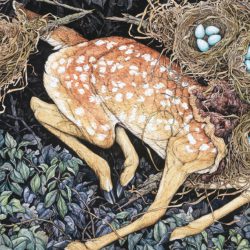
HIMERE / CHIMERASDin când în când,
confraţi amici,
călătorim –
corăbii bete,
vicii latente şi secrete –
acolo, nişte vieţi mai mici…
Şi umbre mari
ne mai străbat,
e drept,
din ce în ce mai rar,
Rimbaud – boemul infernal,
Verlaine – saturnian damnat;
tenebre-alunecoase, reci
din anotimpul infernal –
suspin etern lipit fatal:
„Te voi împiedica să pleci!“
Se face frig.
„D’une aurore au soin
Dùt s’envoler ma vie”,
Ah! Mallarmé, o lacrimă
obrazului cernit tivi…
În frac de albatros,
Baudelaire
scufundă răul în esenţe,
stingându-şi lava în demenţe
şi suferinţa-n mări şi-n cer.
Din când în când ne mai trezim,
ne pomenim în voi trăind,
ecouri albe, depărtări,
ne bântuie, cărări smintind…
Himere răsfirate – noi –
în veacu-acesta
cangrenat,
vulcanică esenţă – voi –
E craniul lumii-mprăştiat.
EVELYNE MARIA CROITORU………………….
CHIMERAS
From time to time,
my brethren mates,
we travel –
drunken boats eschewing,
latent and secret evil-doing –
there, so to speak, some smaller fates…
And great shadows
still haunting us
It’s true,
quite seldom, more and more
Rimbaud – the infernal rebel,
Verlaine – the damned saturnine, thus;
darkness so slippery and cold,
from the infernal season lewd –
eternal sigh fatally glued:
“From leaving I’ll stop you and hold!”
It’s getting cold.
„D’une aurore au soin
Dùt s’envoler ma vie”
Ah! Mallarmé enclosed a tear
on the somber face esprit.
In albatross tailcoat,
Baudelaire
sinks all the evil into essence,
quenching his lava into madness
and his pain into seas and air.
From time to time we awake thus,
we find ourselves living in you,
white echoes, distances anew,
they haunt us, maddening the paths…
Besprent chimeras – this is us –
in this gangrenous
age, behold
volcanic essence – you alas –
It’s the scattered skull of the world.trans. M. M. Biela
THE AMULET / TALISMANUL
POSTED IN classic poetry May 16, 2022
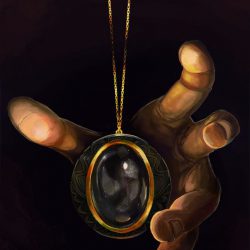
THE AMULET / TALISMANULYour picture smiles as first it smiled,
The ring you gave is still the same,
Your letter tells, O changing child,
No tidings since it came.Give me an amulet
That keeps intelligence with you,
Red when you love, and rosier red,
And when you love not, pale and blue.Alas, that neither bonds nor vows
Can certify possession;
Torments me still the fear that love
Died in its last expression.RALPH WALDO EMERSON
………………..
TALISMANUL
Poza-ti zambeste tot la fel,
Acelasi e inelul dat,
Scrisoarea-ti, schimbator copil,
Vesti noi, de când veni, n-a dat.Să-mi dai un talisman
Care s-arate ce simti tu,
Roșu si roz, cand tu iubesti
Palid si-albastru atunci cand nu.Vai, nici un fel de juraminte
Destinul nu vor izbavi;
Tare mi-e teama că iubirea
Demult muri.
trad. M. M. Biela
WALPURGIS / WALBURGA
POSTED IN Roland May 3, 2022
WALPURGIS / WALBURGA
Im gewendeten Besenschrank steht
mein unerwarteter Stoßtrupp,
der springt staubdurstig durchs Zimmer,
stößt mich, klopft mich, entführt mich,
wirbelt hinaus
zwischen Computern, gefluteten Straßen,
Lärm, der die Trommelfelle zerreißt,
zerfetztem Gebein, geborstenen Brücken,
Gleichmutgesichtern, geheuchelt,
Vorschriftgestrüpp, erlitten,
und coolem Rumhängen, Tun-als-ob
in Thüringen, Sachsen,
schnell auf den Blocksberg zu
mit dem alten Granit und Geröll,
der sich in Nachtnebel hüllt,
um fegend und bürstend sich zu verwandeln
und hexentanzend zu toben,
bis ein Morgen aufklart: ernüchterter Blick
in die Tieflandsbucht
mit dem Trugbild gebändigter Ströme
und meinem Besenschrank.ROLAND ERB
………………..
WALPURGIS
In the upturned broom cupboard stands
my unexpected shock troop,
bounding across the room,
thirsty for dust,
pushing me, kicking me, abducting me,
whirling outside
between computers, flooded streets,
noise tearing the eardrums,
jagged bones, broken bridges,
equanimities, pretentious,
regulatory scrub, endured,
and cool hanging-out, make-believe
in Thuringia, Saxony,
heading rapidly towards the Blocksberg
with its old granite and its pebbles,
which wraps itself in a nocturnal mist,
to transform into sweeping and brushing
and unleashed witch-dancing,
until a morning breaks: sobered view
of the lowland bay
with the mirage of tamed streams
and my broom cupboard.………………….
WALBURGA
În dulapul cu mături întoarse sta
trupa mea de soc neașteptată,
sarind însetata de praf prin cameră,
împingandu-ma, lovindu-ma, răpindu-ma,
iesind in vartej
printre computere, străzi inundate,
zgomote care sfasie timpanele,
oase rupte, poduri sparte,
chipuri impasibile, prefăcute,
uniforma regulamentara, indurata,
și mișto să pierzi timpul, make-believe
în Turingia, Saxonia,
repede spre Blocksberg
cu vechiul granit și bolovani,
invaluindu-se în ceața nopții,
transformandu-se in măturat și periat
și dansul vrăjitoresc dezlantuit
până când se limpezește o dimineață: priveliste dezamagita
a golfului de la ses
cu mirajul pâraielor îmblânzite
și dulapul meu cu mături.trad., M. M. Biela
Franciscae meae Laudes / Francescai laudele mele
POSTED IN classic poetry May 3, 2022

Franciscae meae Laudes / Francescai laudele meleNovis te cantabo chordis
O novelletum quod ludis
In solitudine cordisEsto sertis implicata
O femina delicata
Per quam solvuntur peccata !Sciut beneficum Lethe
Hauriam oscula de te
Quae imbuta es magneteQuum vitiorium tempestas
Turbabat omnes semitas
Apparuisti, Deitas.Velut stella salutaris
In naugragilis amaris…
Suspendam cor tuis aris !Piscina plena virtutis
Fons aeternae juventutis
Labris vocem redde mutis !Quod erat spurcum, cremasti
Quod rudius, exaequasti :
Quod debile, confirmastiIn fame mea taberna
In nocte mea lucerna
Recte me semper guberna.Adde nunc vires viribus
Dulce balneum suavibus
Unguentatum odoribusMeos circa lumbos mica,
O castitatis lorica
Aqua tincta seraphicaPatera gemmis corusca
Panis salsus, mollis esca
Divinum vinum, FranciscaCHARLES BAUDELAIRE
——————
Francescai laudele mele
Pe coarde noi slava-ti scriu
Vlastaras frematand viu
In al inimii pustiu.De ghirlande-mpresurata
O, femeie delicata
Absolvita, far’ de pata.Te-as picta in sarutari
precum Lethé-n desfatari
ca un magnet dai vibrari.Cand furtuna de pacate
a spalat caile toate
tu aparusi, zeitate.Precum steaua salvatoare
in naufragii amare
inima-mi-iti facu altare.Havuz de virtute plina
tineret-etern senina
da-mi buzelor vorba plina!Ce fu infam, foc ai dat ;
Ce vulgar, ai aplanat
Ce debil, ai confirmat.In foame mi-ai fost mancare ;
In noapte lumina mare
Ghideaza-ma pe carare.Forta da-n taria toata
dulce baie parfumata
Miros suav aromata !Talie de foc luceasca
Neprihanita cereasca
Gust de apa ingereasca.Cristal taiat in corusca,
Paine sarata pe-o fresca
Vinul meu divin, Francisca!
M. M. Biela

Copyright © 2024 by Magdalena Biela. All rights reserved.
